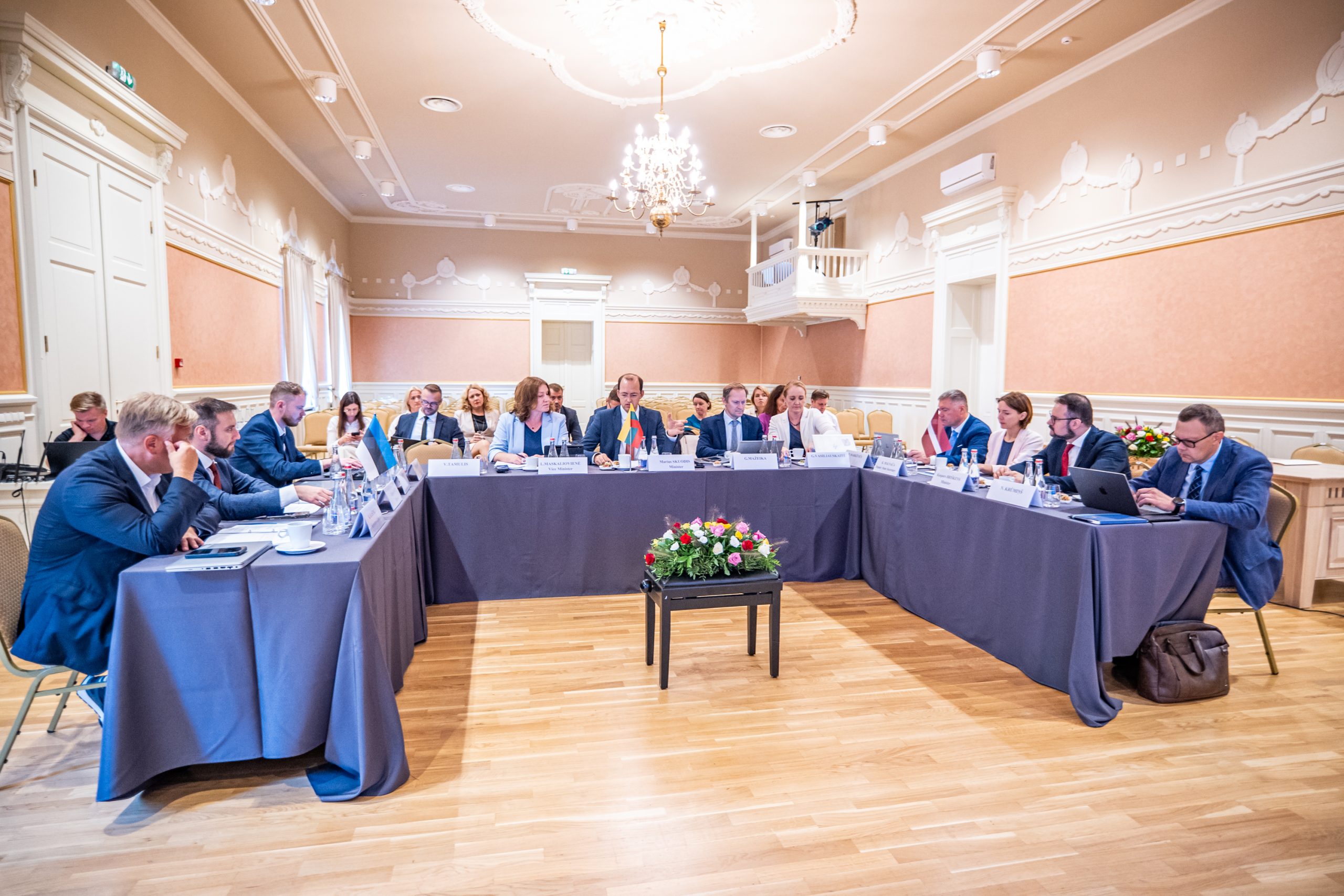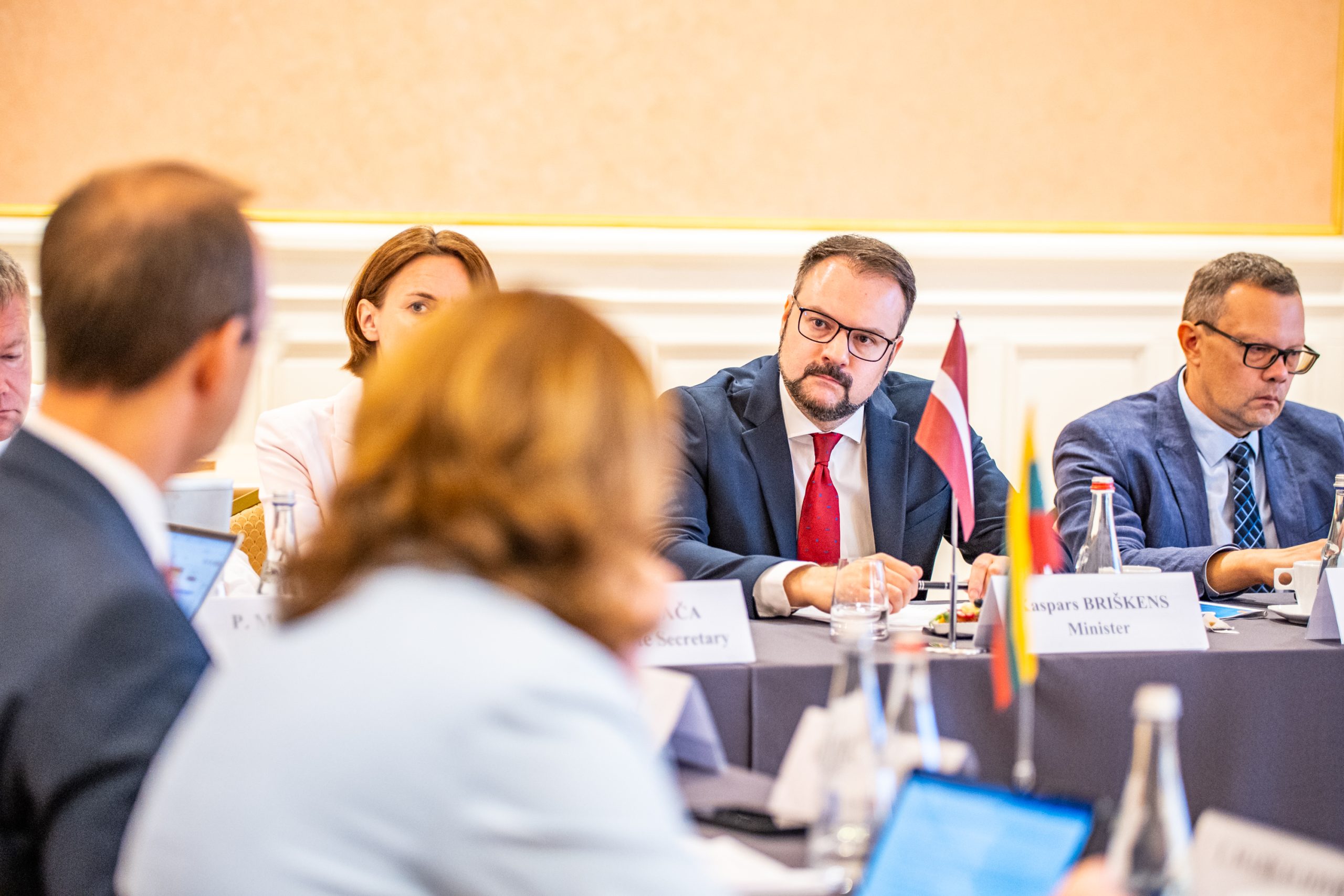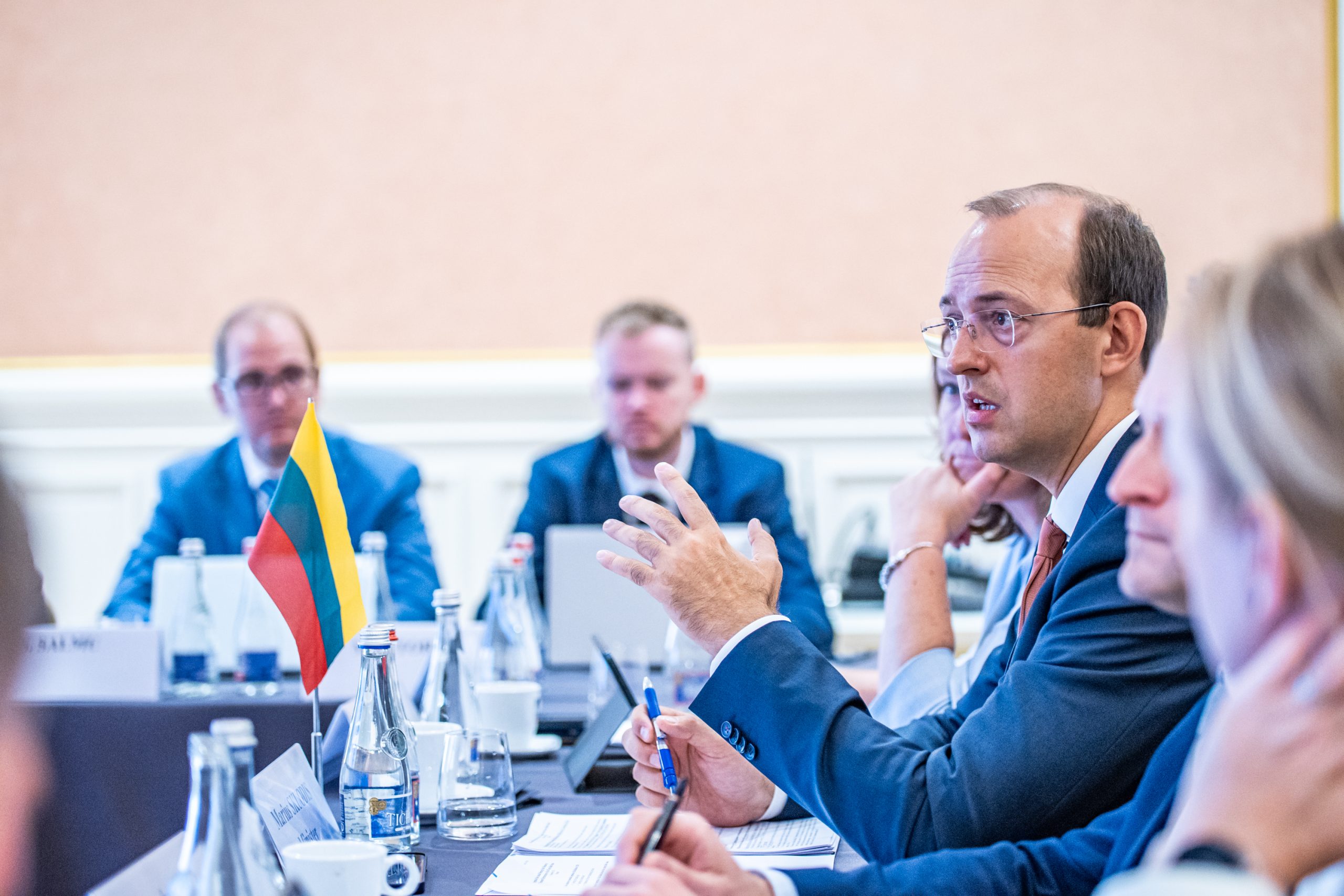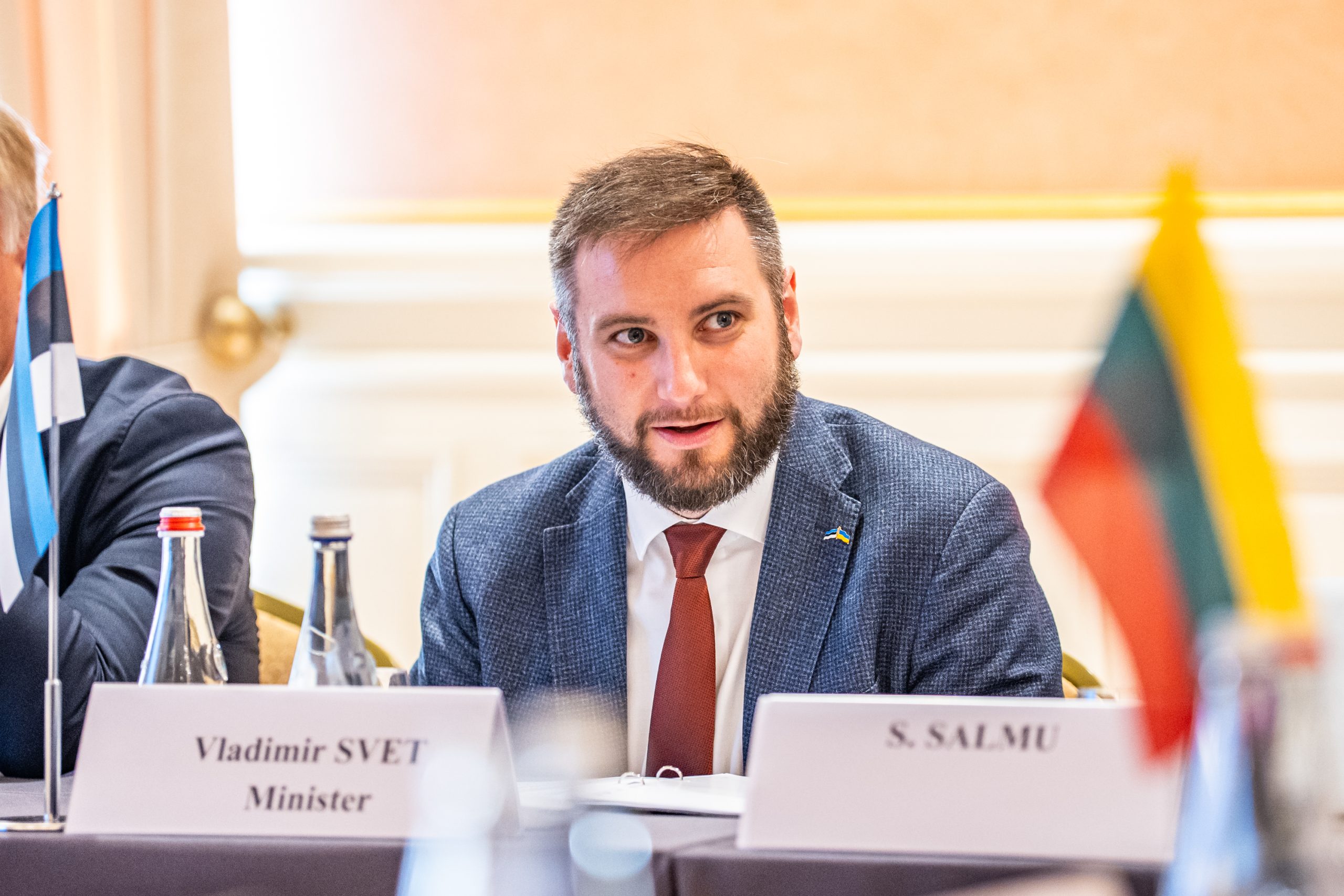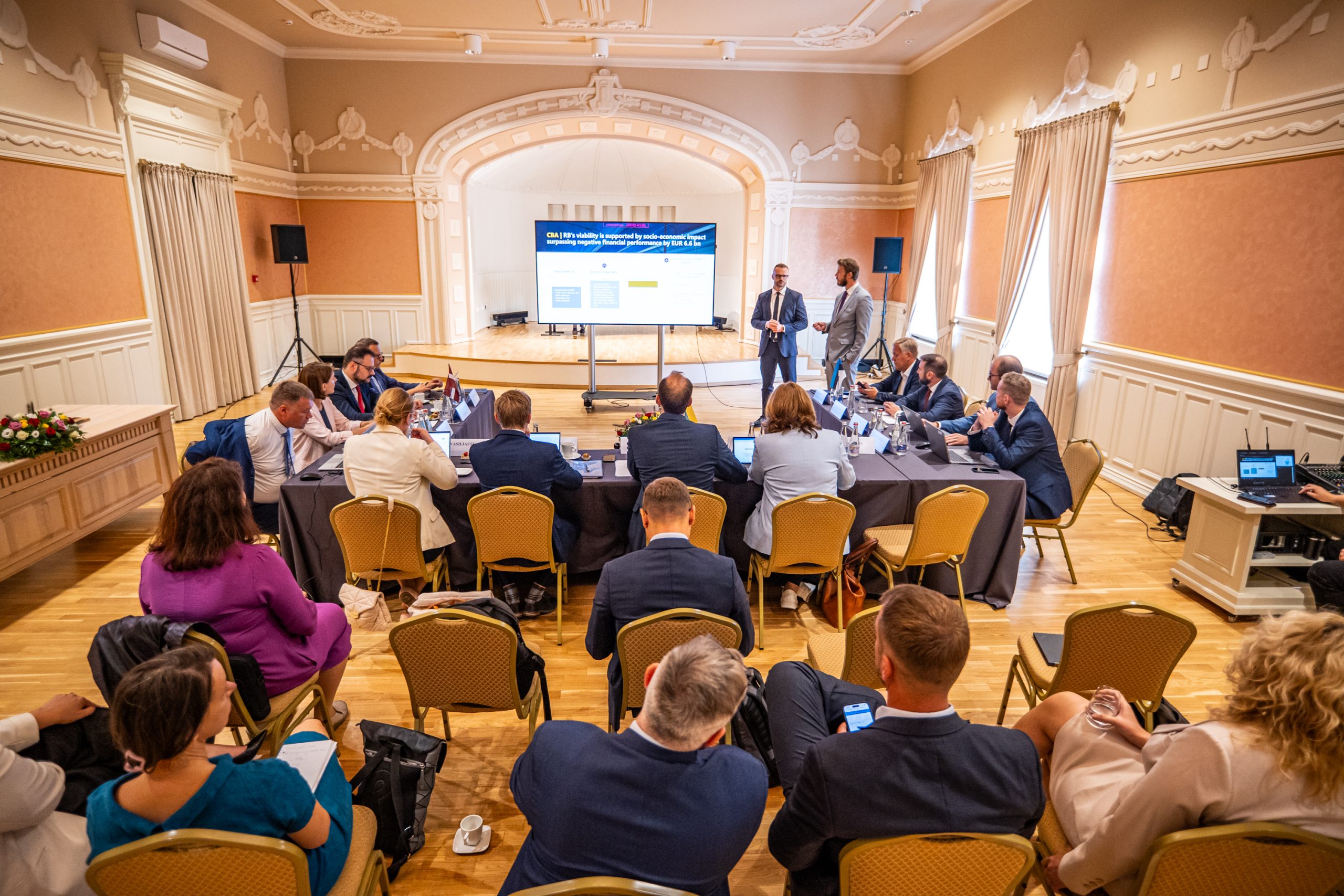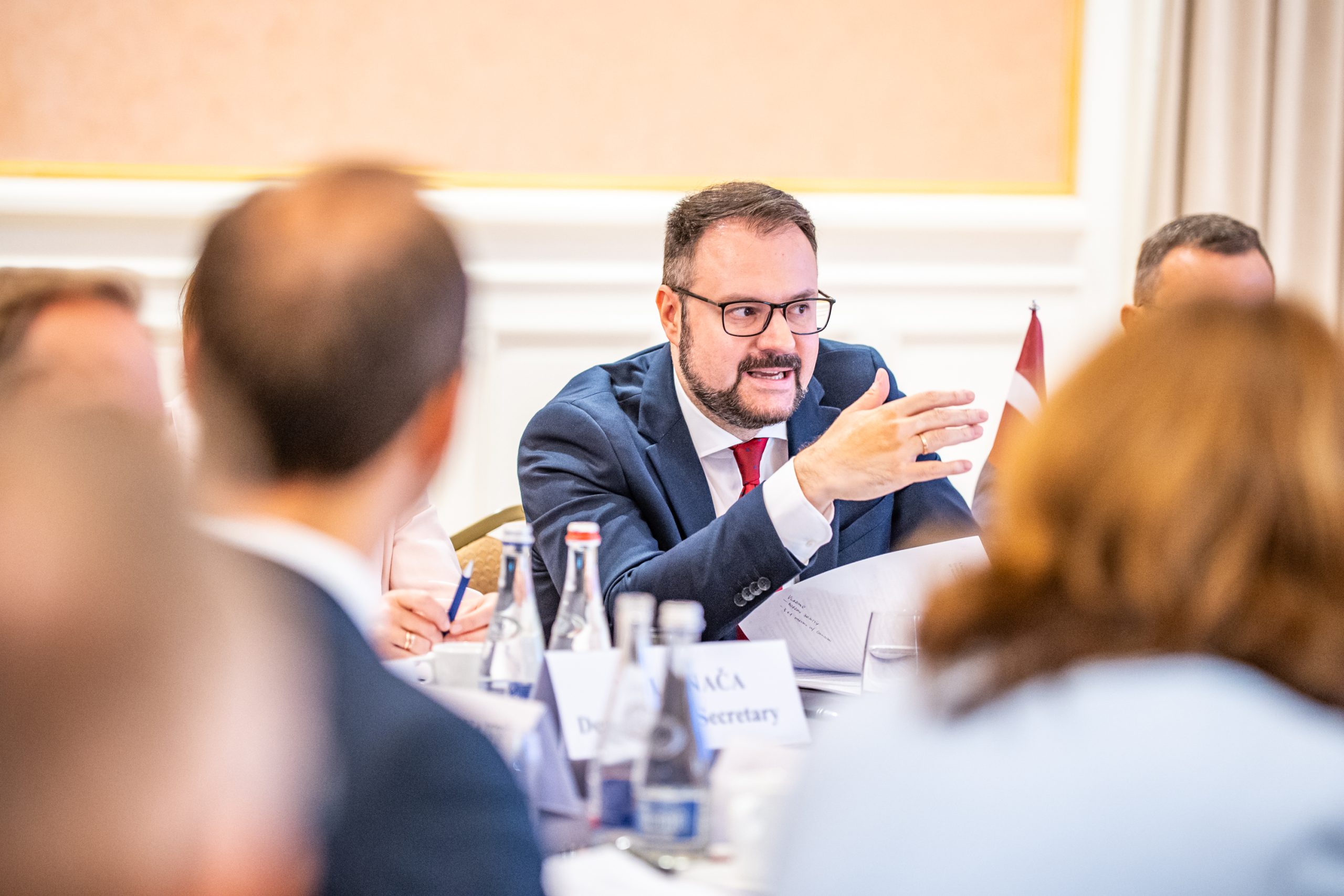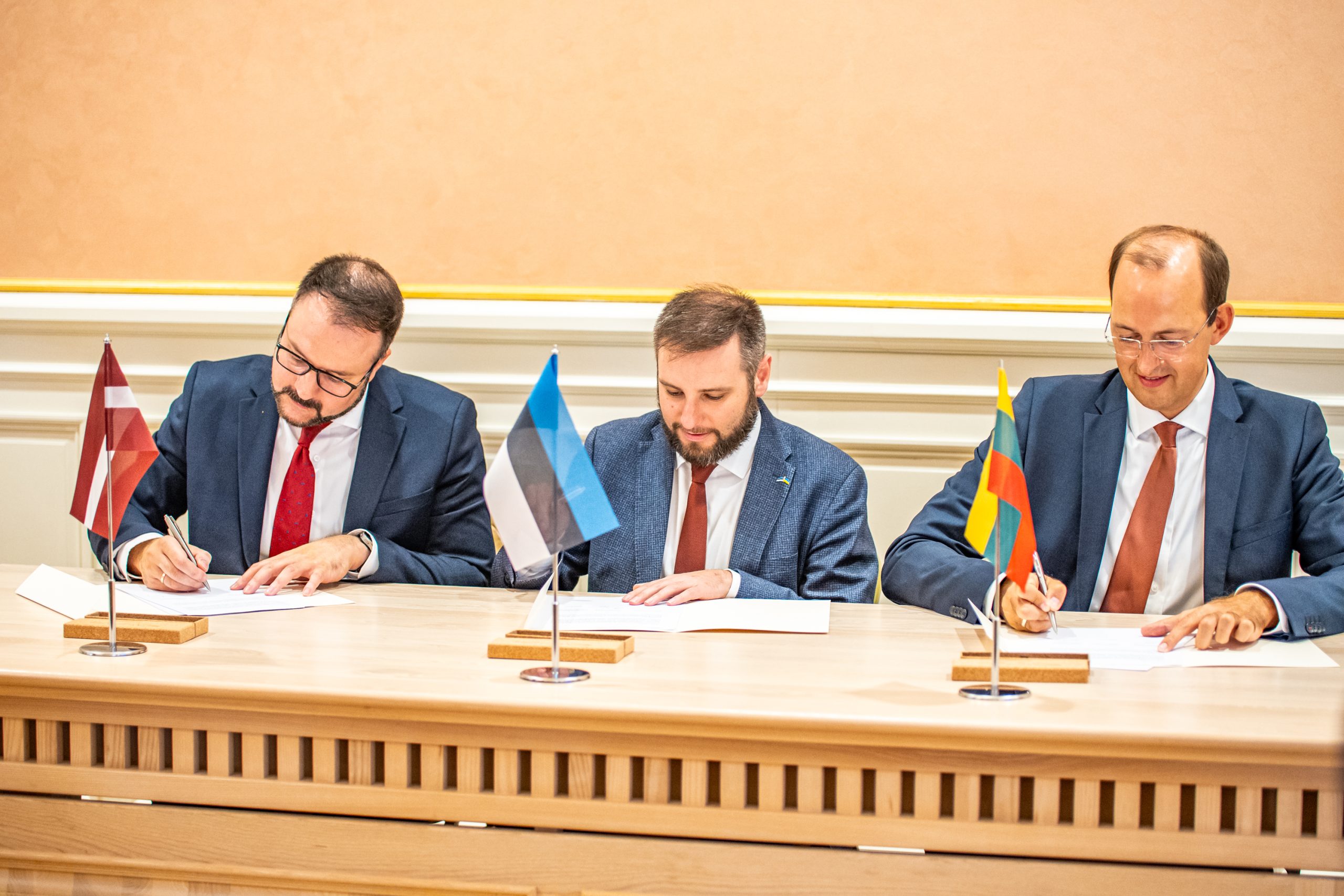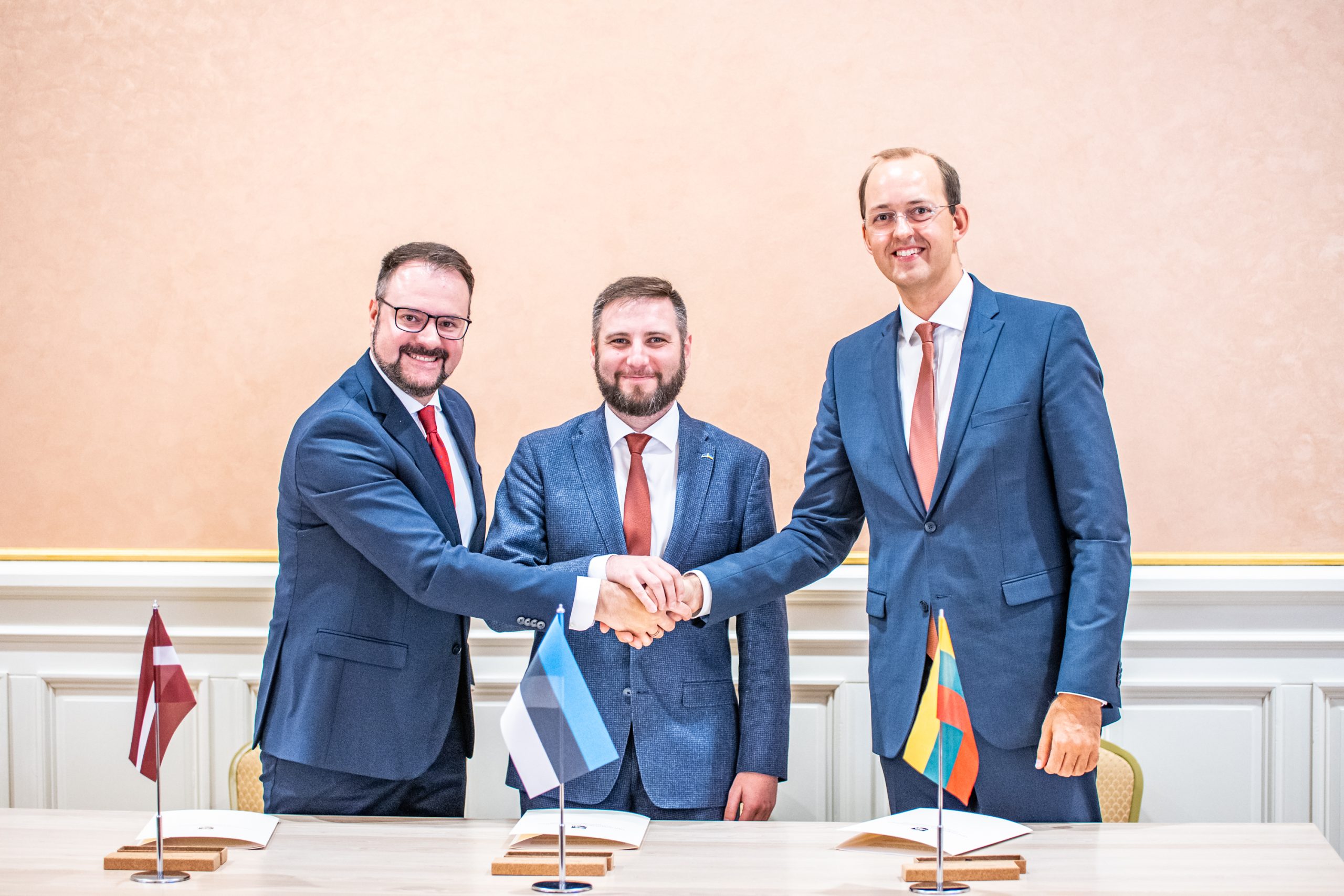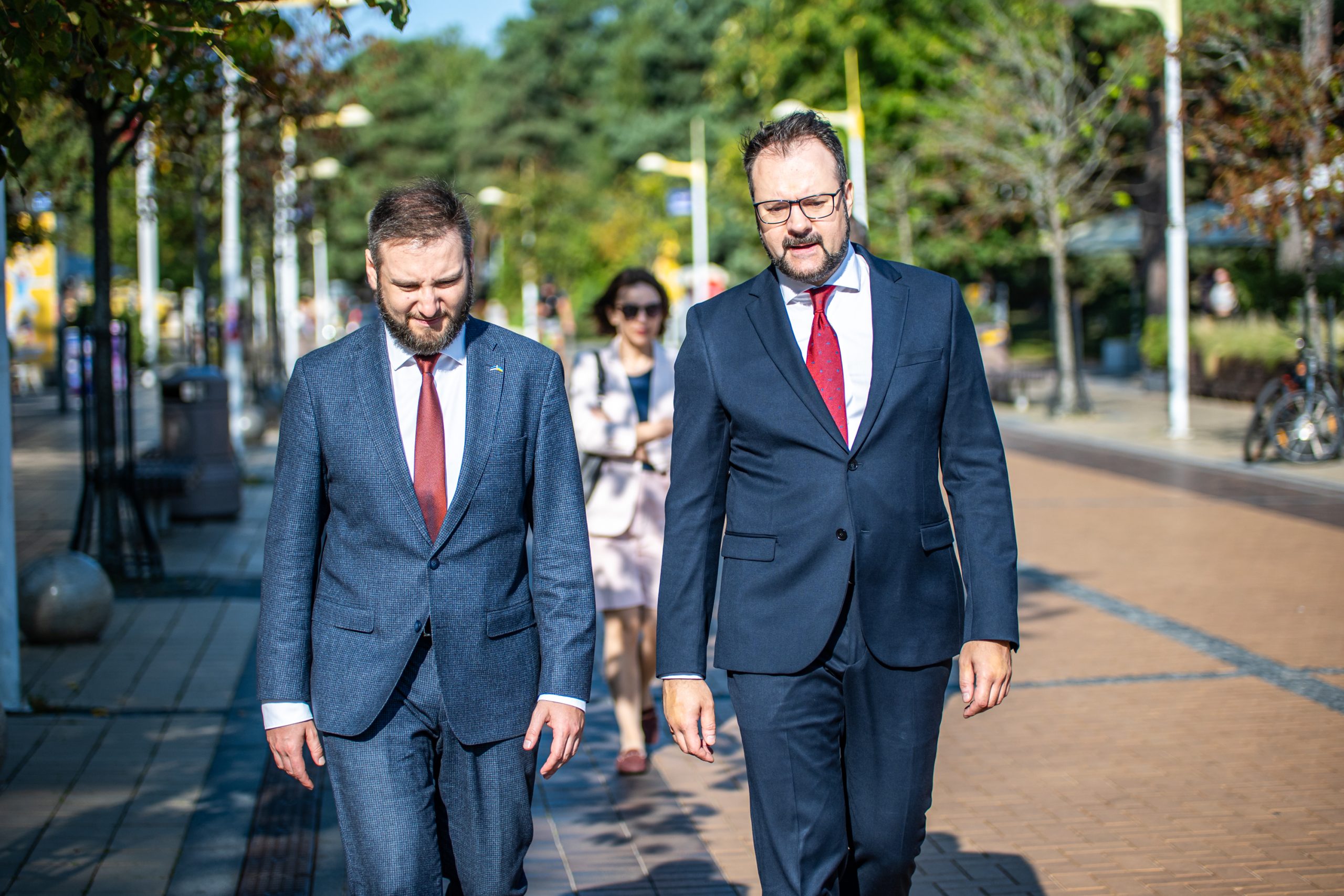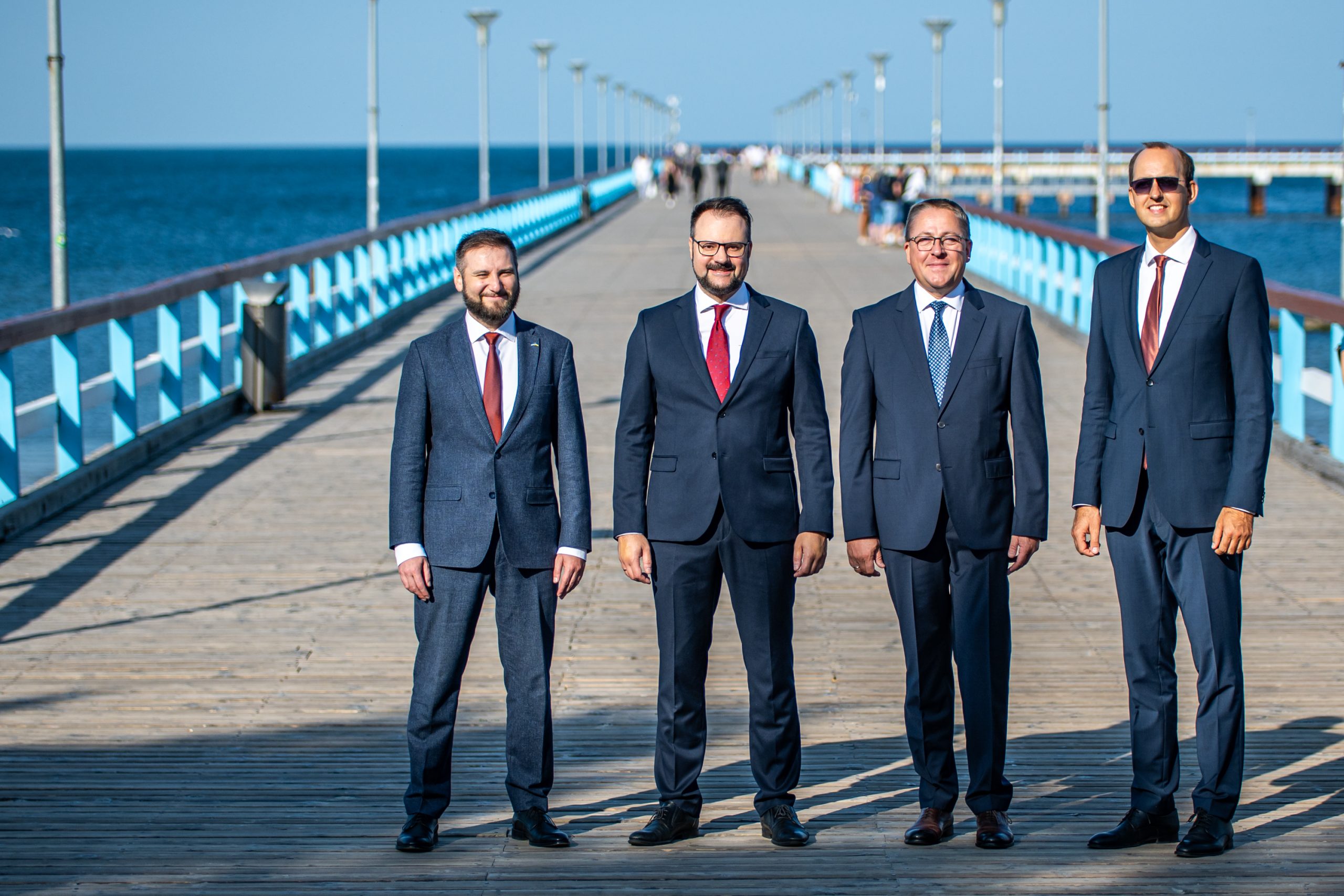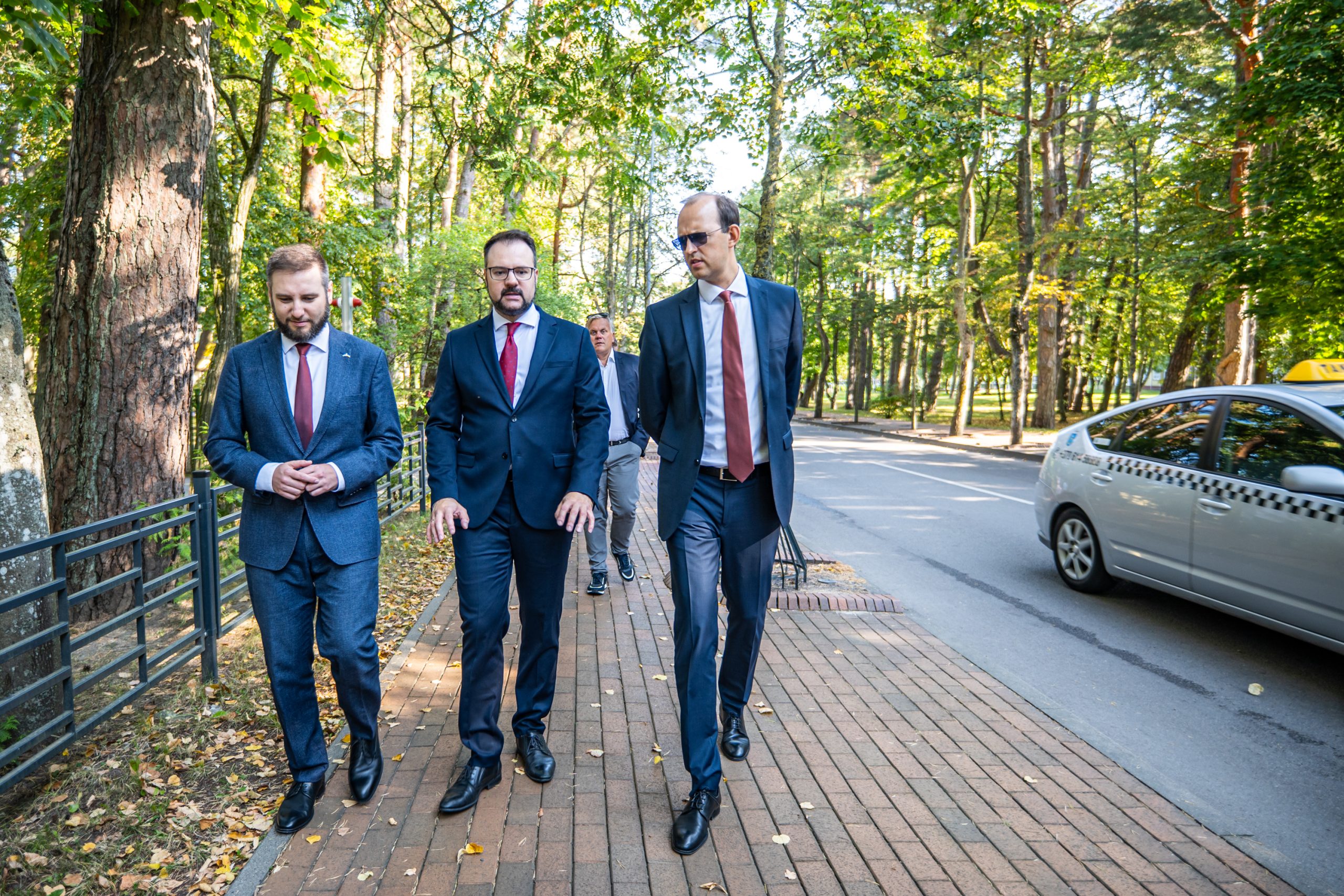Lithuanian, Latvian and Estonian Transport Ministers met in Palanga on Friday to sign a joint document expressing their aim to maintain and further increase European funding for strategic transport infrastructure projects that improve military mobility links to Europe.
In the joint non-paper “CEF III – a focused approach to bring the EU closer together”, Marius Skuodis, Lithuanian Minister of Transport and Communications, Kaspars Briškens, Latvian Minister for Transport, and Vladimir Svet, Estonian Minister of Infrastructure, underlined that in the next EU multiannual financial framework (MFF), Connecting Europe Facility (CEF) has to remain one of the key instruments of the EU budget with appropriate financing in order to meet the growing needs of the EU and its Member States in transport, energy and electronic communications sectors.
According to the ministers, in the context of the new MFF starting in 2028, increased European funding will be crucial to further develop missing cross-border transport links, accelerate the Rail Baltica project, and integrate the Baltics into the European transport system. They also draw attention to the need to provide more funding for military mobility.
The Connecting Europe Facility is one of the main sources of funding for the development of EU transport infrastructure, including Rail Baltica.
This year, the European Commission has allocated an additional amount of around EUR 1.2 billion for the development of Rail Baltica in the Baltic countries.
The entire Rail Baltica project, connecting the Baltic states to Europe, is scheduled to be completed in 2030, with the Lithuanian-Polish link to be accomplished in 2028.
The need to strengthen the CEF, as well as to provide more funds for military mobility at European level, was also highlighted in the Declaration of the Ministers of Transport of Central Europe and the Baltic states, signed this year in the Czech Republic.

